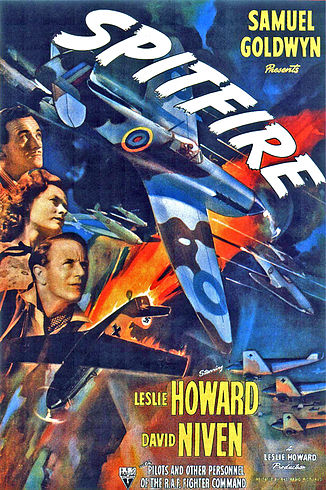These are not Hollywood sound effects
This is the music they play every night in London
A symphony of war
These words narrated by someone who sounds rather too much like William Shatner for comfort, or my comfort at least, form the centrepiece of my favourite track on Public Service Broadcasting The War Room EP, ‘London Can Take It’ from 2012. This is a bit of a cheat, since I only picked this up in August this year, but hey I am a Golden God and make my own rules here.
Public Service Broadcasting are J Willgoose Esq. and Wigglesworth, two hepcats who use all manner of old BFI* public information film audio tracks, entwined with some tasteful beats and, if you listen deep, some damn good guitar. The nearest comparison I could make is that PSB sound a little like Lemon Jelly with guitars, a little. All those fruity old BBC-style voices harnessed to good effect to create various moods. This year’s LP Inform-Educate-Entertain is an excellent listen, but at the moment I prefer The War Room for its tight focus on WW2.
As a nation Britain is obsessed with the war, my theory being that we look back on it nostalgically as simpler times when the enemies were obligingly easy to define, society itself was a lot less complex, we all pulled together in a common cause and it was a last flexing of British muscles in a cause universally held to be the righteous one; I’ve studied enough to know all those statements are grossly simplified, but still. My children are both learning about different aspects of it in history at the moment, boy-child about the Nuremberg Trials and girl-child about the home front and I used to ask my grandfather all about it when I was little**. Passing time gives most things to do with the war in this country a comforting sepia patina of cosiness, but if we accept that national cosiness we run the risk of losing sight of the very real hurt behind it all. I think The War Room deals with all this very admirably indeed.
There is a gentility about the music here, the quiet strumming of ‘If War Should Come’ leading to a crescendo as war is declared, settling to an ominous quiet seguing straight into the defiance of ‘London Can take It’. The narrator, umm, narrates his admiration for the volunteers who are ‘really fighting the war / They are heroes by night’, the track builds and builds nailed by the fact that ‘London can take it’, likening the city (during the blitz, I assume) to a prize-fighter getting up off the canvass every morning. It would have been easy to cut loose here, to add a guitar squall, a shift of noise but I like the restraint Public Service broadcasting show here by not doing so; it’s all rather British in a bit of a clichéd way – the beauty of clichés being of course that they do contain some truth.

‘Spitfire’, the opener on side 2 is the only track here included on the LP proper and it’s a real guitar-fest by Public Service Broadcasting standards. With dialogue taken wholesale from the ‘First of The Few’ the 1942 film about the development of the Spitfire, the film’s name coming from a Churchill speech. The track carries us aloft on a wave of Boys Own excitement and derring-do^, a mood continued in ‘Dig For Victory’, again another song evocative of a quiet determination to pull together and survive, with a few Floyd-esque synth touches. .
This EP is dedicated to the memory of George Willgoose, January 1914 – May 1940
The insert carries photographs of two envelopes and two photographs of, I assume, George Willgoose in uniform. One of which is a shot of a young man sat on a bike, smiling, leaving his family to do his duty overseas perhaps. I found it very touching indeed, I’ve seen similar photographs of my grandfather and I would have thought most families have similar in their albums. It all ties in with the last, poignant track here, ‘A Waltz For George’, over a quiet plucked string backing we have a report on the state of the British troops evacuated from Dunkirk in May/June 1940. The last line used in the track and also quoted on the insert is, ‘and so the men of the BEF came home’ and then there’s silence, I would guess for George Willgoose who, I imagine didn’t. Again, not wishing to live up to all our national stereotypes, it is very moving in a reserved manner.
As I said earlier, The War Room is an excellent record, evocative and clever, definitely possessed of both head and heart. If you’re looking for some tastefully restrained kicks, I can think of none better right now. Buy it.
262 Down.
*British Film Institute. BEF, which appears later, was the British Expeditionary Force.
**He drove supply lorries all over Europe and I only found out last month that his unit was one of those on guard duty in Nuremberg during the trials. He was also involved in the liberation of Belsen, but that’s a story for another time (maybe?), a photo he took of it burning is one of my most-treasured possessions.
^I know, I know I’ve used the phrase twice in consecutive reviews – sue me.



PS. Any post worth its service medal should include derring-do.
The backing singers for my next imaginary band will be called ‘the derring-dss’
Terrific post, Joe. Beautifully written and I learned something too.
Thank you kindly, it took a while to do.